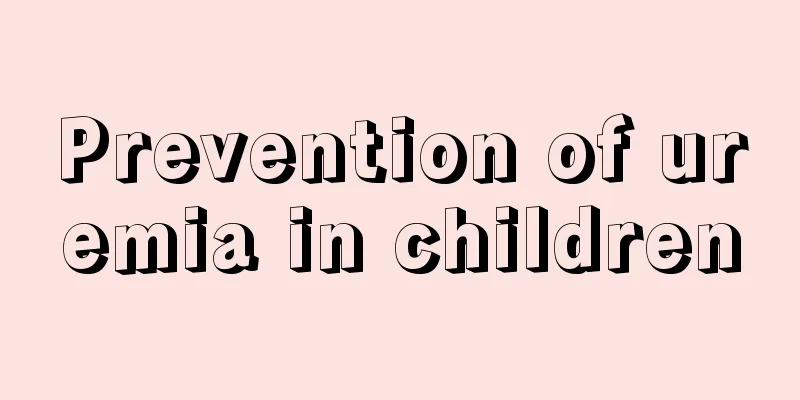What should I do if my baby is zinc deficient for one and a half weeks?

|
When the baby is very young, any abnormal symptoms in the body are issues that are worthy of our parents' concern. The younger the child, the weaker the body's resistance is. At this time, the immunity is in a declining state. The child's immunity is very important. If it declines, the child may get sick. The most common disease in children is zinc deficiency. If the child does not like to drink milk or eat anything, it may be that the child is zinc deficient. So what should I do if the baby is zinc deficient for a week and a half? Step 1: Check your blood zinc levels. When parents find that their children have anorexia, pica, etc. due to zinc deficiency, they should go to the hospital in time to ask the doctor to check the zinc content in the child's blood and supplement zinc according to the body's needs. Zinc drugs must not be used as nutritional supplements. " Step 2: Feed your baby with breast milk. We have always advocated breastfeeding, not only because breast milk is rich in nutrients, many of which are irreplaceable by cow's milk or milk powder, but also because these nutrients are easier for babies to absorb than cow's milk and milk powder. The zinc content in breast milk is almost the same as that in cow's milk, but the absorption rate of zinc in breast milk is much higher than that in cow's milk. Therefore, unless breastfeeding is really impossible, mothers are advised to breastfeed for the healthy development of their babies. Step 3: Let your child eat foods high in zinc. If a breastfed child is zinc deficient, the mother can increase the zinc content in breast milk by eating more foods high in zinc. This way, the baby can also get more zinc by sucking breast milk. Step 4: Remember that blindly supplementing zinc is harmful to children. Too much zinc can cause damage to the liver, and in severe cases, it can cause symptoms of jaundice hepatitis. It will also weaken the immune function. Under the action of magnesium ions, zinc can inhibit the activity of phagocytes and reduce their chemotaxis and bactericidal effects. Under normal circumstances, this effect will be inhibited by serum proteins and calcium ions. Therefore, if people with hypocalcemia and children with rickets take too much zinc, it will lead to damaged immune function and weakened disease resistance. Step 5: Drug treatment. Parents should pay close attention to their baby's mental state, growth and development, daily life, etc. If the baby has anorexia, chronic diarrhea, oral and skin infections, or poor growth and development, they should go to the hospital for examination in time. Babies who are indeed zinc deficient should be given preparations such as zinc sulfate syrup or zinc gluconate under the guidance of a doctor. The medication is generally used for 2-4 months, and should be stopped promptly after follow-up examinations return to normal. Precautions If children have a normal diet and are not sick, their daily zinc intake from the diet can basically meet this standard. Excessive intake of zinc in the human body will interfere with the absorption of other nutrients. Too much zinc in the body will also inhibit the phagocytic and bactericidal effects of white blood cells, causing impaired immune function. Zinc is a trace element, so supplementation must be moderate. If you consume too much, it can cause poisoning, gastrointestinal symptoms such as nausea, vomiting, abdominal pain, diarrhea, etc. It can also cause fever, anemia, growth retardation, joint bleeding, bone decomposition, kidney failure, cardiovascular and cerebrovascular diseases, etc. How much zinc does a baby need every day: 3 mg/day for children under 6 months old; 5 mg/day for children between 6 and 12 months old; 10 mg/day for children between 1 and 13 years old; 15 mg/day for children over 13 years old Which foods contain a lot of zinc: lean beef, pork, lamb, chicken hearts, fish, oysters, egg yolks, skimmed milk powder, wheat germ, sesame, walnuts, oysters, beans, peanuts, millet, radish The above methods are used to treat zinc deficiency in babies. When treating zinc deficiency in babies, you must also remember to improve the baby's diet. A week and a half old baby may be breastfeeding. At this time, mothers should eat more zinc-supplementing foods, so that the baby can also get zinc through breast milk, which improves the child's zinc deficiency symptoms. When choosing milk powder, you must also choose foods high in zinc. |
<<: What should I do if my baby has mild anemia?
>>: What to do if your baby is anemic for one week
Recommend
Is it necessary to bathe babies every day?
Children nowadays are very precious in every fami...
What should children eat if their memory is declining?
Many parents probably have had this question: wha...
Treatment of cough and nasal congestion in children
I don’t know if you have ever encountered childre...
What does it mean when the baby has obvious blue veins on his head?
If there are blue veins on the baby's head, p...
What should I do if my three-year-old baby has astigmatism?
The baby's eyesight is very important. It is ...
Is massage effective for children's cough?
Massage is a very common physical therapy method ...
What is the normal heart rate for children?
A child's normal heart rate plays a big role ...
What are the drugs for treating ADHD?
The term ADHD may not be unfamiliar to parents wh...
Full moon baby's eyes have red bloodshot
We should know that red bloodshot eyes in babies ...
Will the baby have a fever if he uses a fan?
Fans are electrical appliances found in many hous...
Children with fever and cramps should be treated promptly
It is normal for children to have a fever, but if...
Can a one-year-old baby eat raisins?
After eating complementary foods, babies will be ...
What to do if your baby has tooth decay at 1 and a half weeks old
After the baby's teeth grow, if you don't...
Treatment for children with a temperature below 36 degrees
Nowadays, infant diseases are rampant and many in...
What should I do if a child has swollen lymph nodes behind his ears?
The lymph nodes are located below the ears. There...









